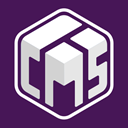Top Gentics Mesh Alternatives for Your Headless CMS Needs
Gentics Mesh is a robust headless CMS offering a powerful RESTful and GraphQL API, built-in Elasticsearch, and linear scalability. It's an excellent choice for developers looking for a dependency-free setup with comprehensive user management and dynamic content organization. However, no single solution fits all, and you might be looking for a Gentics Mesh alternative that better aligns with your specific project requirements, budget, or preferred technology stack. This article explores some of the best alternatives available in the market.
Discover the Best Gentics Mesh Alternatives
Whether you prioritize open-source flexibility, specific API capabilities, ease of use, or managed services, there’s a headless CMS out there for you. Let's dive into the top contenders that can serve as a powerful Gentics Mesh alternative.

Strapi
Strapi is the most popular open-source Headless CMS, offering developers the freedom to use their favorite tools and frameworks. As a free, open-source, and self-hosted Gentics Mesh alternative, it provides features like GraphQL integration, REST API, a plugin manager, and support for NodeJS, making it highly flexible for various projects.

Cockpit
Cockpit is a lightweight, open-source, and self-hosted headless CMS built for simplicity, ideal for dynamic sites. Running on PHP and SQLite, it offers core headless CMS functionality, making it a straightforward Gentics Mesh alternative for those seeking minimal overhead.

Contentful
Contentful is a commercial, web-based content management system that excels in cross-platform, multi-device publishing. With its powerful API, Contentful stands as a strong Gentics Mesh alternative for businesses requiring a managed service with robust content delivery capabilities.

Sanity.io
Sanity.io is a freemium, open-source headless CMS that provides a hosted backend for structured content with a real-time API and a globally distributed CDN. Its powerful, yet simple query language and features like asset pipeline make it a versatile Gentics Mesh alternative for developers.

Prismic
Prismic is a freemium, web-based CMS backend that emphasizes design and technology freedom through its API-first approach. Offering features like content scheduling, built-in translation, and file versioning, Prismic is a solid Gentics Mesh alternative for projects valuing content workflows and internationalization.

PushTable
PushTable is a free, web-based API-driven headless CMS powered by Firebase's Cloud Firestore. Perfect for serverless architectures, it leverages spreadsheets for content management, offering a unique and simple Gentics Mesh alternative for those already in the Google Cloud ecosystem.

Cloud CMS
Cloud CMS is a commercial, web-based headless and API-first content management system, built around JSON. It provides enterprise features, Git-like versioning, and flexible content models as a Software as a Service, making it a robust Gentics Mesh alternative for large-scale deployments.

GraphCMS
GraphCMS is a freemium, web-based headless CMS based on GraphQL. It offers a hosted GraphQL content API with powerful content editing tools, including built-in image editing and a mutation API, presenting a strong Gentics Mesh alternative for GraphQL-centric projects.

Comfortable
Comfortable is a freemium, cloud-based API-first CMS that integrates quickly with any framework or platform. It offers both GraphQL and REST API capabilities, making it a versatile Gentics Mesh alternative for developers seeking ease of integration and flexibility.

Lagan
Lagan is a free, open-source, self-hosted CMS built with PHP, allowing for the creation of flexible content objects managed through an 'automagically' created web interface. As a simple and open-source Gentics Mesh alternative, it's suitable for developers comfortable with PHP environments.
Choosing the right headless CMS as a Gentics Mesh alternative depends entirely on your project's specific needs, technical expertise, and budget. Each of these alternatives brings its own strengths to the table, from open-source flexibility to powerful cloud-based services. Explore their features, consider your team's preferences, and select the one that best empowers your content delivery strategy.